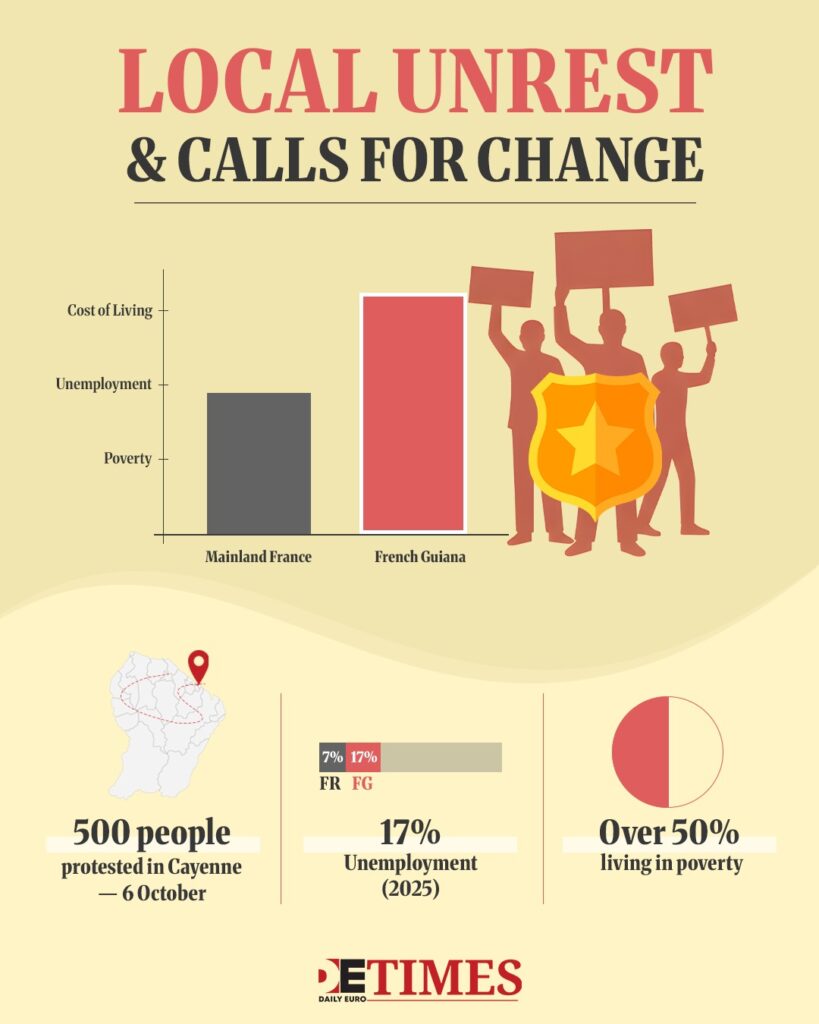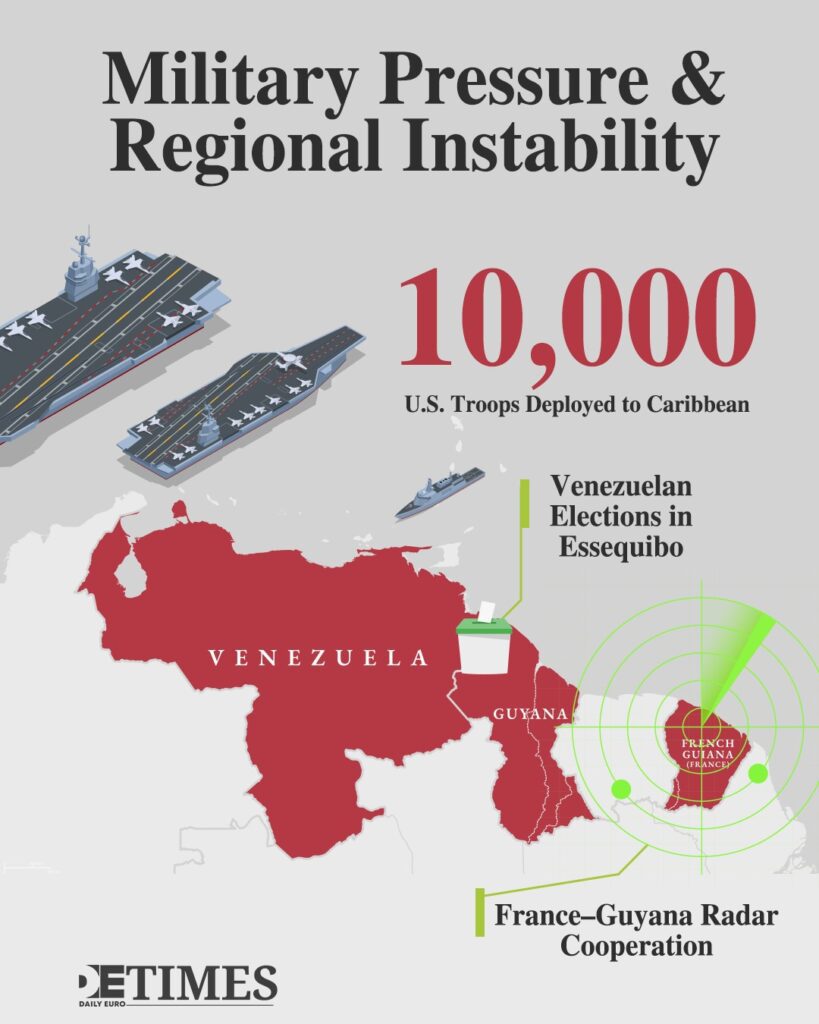French Guiana in South America is a hotspot of conflict and unrest. Venezuelan warships have been patrolling waters close to French territory, increasing friction as France addresses growing protests from local communities.
The region is a necessary European outpost, making the situation delicate and unstable.
Local Unrest and Calls for Change
On 6 October, about 500 people gathered in Cayenne to protest after a school principal was summoned by police following complaints linked to racial matters involving officers’ children.
Residents expressed anger over what they call systemic racism across French Guiana. Deputy Davy Rimane pointed out the longstanding injustices affecting local people and demanded urgent reforms.
More than half the population lives in poverty, with unemployment reaching 17 percent in early 2025. Residents recount hard living conditions, including rockets launched over impoverished neighborhoods.
Despite visits by ministers from Paris, locals insist on structural transformations. Indigenous groups like the Kali’na also oppose projects such as a nearby photovoltaic plant, warning of disruptions to traditional life and lack of proper consultation.
The UN Committee on Elimination of Racial Discrimination has called on France to respect indigenous rights.

Historical Roots and Colonial Legacy
French Guiana has held overseas department status since 1946, forming its social and political environment. Deputy Jean-Victor Castor describes the territory under a colonial framework, with structural domination within institutions.
The legacy feeds ongoing demands for autonomy and scrutiny of France’s continuing role in the region.

Military Pressure and Regional Instability
The Caribbean area near French Guiana has heightened military activity.
Venezuelan President Nicolás Maduro put armed forces on wartime alert following the deployment of 10,000 U.S. troops to the Caribbean.
Venezuela claims the oil-rich Essequibo region and conducted elections there despite international support for Guyanese sovereignty.
Guyana, supported by France and the U.S., holds limited military capacity. US Secretary of State Marco Rubio warned that hostile actions would meet strong resistance.
France has also expressed concerns about Venezuelan vessels encroaching disputed waters and collaborates with Guyana on defense efforts by supplying radar and other surveillance technologies.
French Guiana shares long Amazonian borders with Brazil. The Venezuelan economic crisis pushed over seven million people to migrate, heightening pressure on local services, infrastructure, and increasing crime.
Paris contributes funds, but locals endure persistent underdevelopment and unrest formed by these conditions.
The European Committee for Prevention of Torture has documented prison overcrowding exceeding 225 percent in some facilities. Plans for a new 500-bed high-security prison in the Amazon, announced by Justice Minister Gérald Darmanin, received criticism from local officials for not addressing the core problems.
Europe’s Strategic Stakes and Internal Challenges
French Guiana functions as a full EU region, with residents voting in European elections, using the euro, and benefiting from development funds.
France claims a large exclusive economic zone thanks to the territory, and the Kourou Space Centre plays a large role in launching European satellites.
Following the October protests, two police officers were suspended amid investigations into abuse of power. Deputy Rimane stated that it was only the start, pushing for statutory reforms to address growing demands for autonomy amid widespread economic disparities with mainland France.
Overlapping Crises of Security and Social Justice
The Venezuelan military operates Russian weapons near French Guiana’s coast as Washington sends carrier groups into the area.
Maduro proceeds to hold elections asserting control, as residents march calling for recognition and better support. The territory sits at the junction of global power competition and the legacies left by colonialism.
Paris maintains a major space centre here, generating wealth despite many residents lacking basic infrastructure and services. Economic inequality fosters resentment, which external military pressures risk exploiting.
Local frustrations compounded with regional military problems jeopardise French Guiana’s stability. The territory bears the combined effects of social and geopolitical divisions.
Europe needs to engage with these difficulties fully to sustain its presence in an increasingly sensitive and volatile region.
Keep up with Daily Euro Times for more updates!
Read also:
West Africa’s New Cocaine Highway: Europe’s Venezuelan Moment?
On Trend: Harvard Repatriates Colonial Era Relic to Brazil
French Farmers: Trade Runs Through the Countryside, Not Brussels






